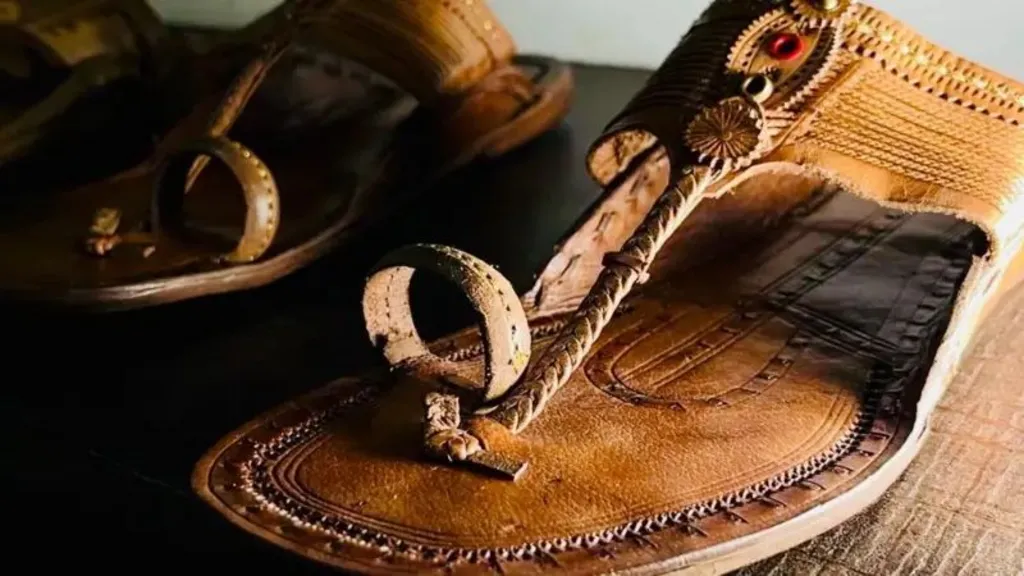Italian luxury fashion house Prada is facing significant backlash after unveiling a new line of sandals at Milan Fashion Week that closely resemble India’s traditional Kolhapuri sandals. The design’s striking similarity to handcrafted Kolhapuris — traditionally made in Maharashtra and Karnataka — has led to accusations of cultural appropriation and disrespect toward Indian artisans.
The Cultural Significance of Kolhapuri Sandals
Kolhapuri sandals are deeply embedded in Indian heritage. Originating from Kolhapur in Maharashtra, these handmade leather sandals have been crafted by skilled artisans for centuries, with roots dating back to the 12th century. Known for their durability, comfort, and intricate design, they hold not only functional but significant cultural and historical value.
In 2019, Kolhapuri sandals received Geographical Indication (GI) status from the Indian government, formally recognizing their unique origin and safeguarding their authenticity.
Prada’s Initial Oversight and Growing Outrage
When Prada presented its new “leather sandals,” it made no mention of the design’s Indian inspiration. This omission quickly drew outrage online and in India, as many accused the brand of profiting from Indian cultural heritage without giving due credit or compensation to the artisans behind the iconic footwear.
The Maharashtra Chamber of Commerce, Industry and Agriculture (MACCIA) wrote a formal letter urging Prada to acknowledge the true origin of the design and recognize the contributions of local artisans.
Prada’s Response: Acknowledgment and Promises of Collaboration
Amid rising criticism, Prada issued a statement acknowledging the inspiration drawn from Kolhapuri sandals. A spokesperson emphasized the brand’s commitment to “celebrating craftsmanship, heritage, and design traditions,” and confirmed that Prada was in contact with MACCIA to address concerns and explore ways to engage with local artisans.
Lorenzo Bertelli, Prada’s Head of Corporate Social Responsibility, stated that the sandals were still “in the early stages of design” and confirmed plans to arrange meetings with Indian artisans to ensure fair dialogue and mutual respect.
The Voices of Indian Artisans and Industry Leaders
Local artisans have expressed both pride and frustration. Prabha Satpute, an artisan from Kolhapur, voiced her disappointment:
“These sandals are made through the hard work of leather workers in Kolhapur. They should carry our name. Don’t profit from our labor without recognition.”
Industrialist Harsh Goenka also criticized the exploitation, highlighting the disparity between the minimal earnings of local artisans and the massive profits of luxury brands:
“They lose while global brands cash in on our culture.”
However, some see a silver lining. Kolhapur-based businessman Dilip Mor noted that some artisans felt pride in seeing their craft receive global attention, despite the controversy.
Broader Issues in the Fashion Industry
This incident is not isolated. Similar controversies have emerged recently, including Gucci mislabeling a saree worn by Alia Bhatt and Western brands marketing South Asian scarves as purely “fashion accessories.” These repeated issues underline the urgent need for global fashion houses to respect cultural origins and collaborate ethically with traditional craftsmen.
Conclusion: Moving Toward Respectful Collaboration
Prada’s acknowledgment of the Kolhapuri sandals’ Indian roots is a critical first step. However, it remains to be seen whether the brand will follow through with tangible actions to support and compensate the artisans who have carried forward this centuries-old tradition.
As the fashion industry evolves, it is vital for brands to engage respectfully with cultural designs, ensure fair compensation, and celebrate the craftsmanship that defines traditional art forms. Through transparent dialogue and genuine partnerships, luxury brands and artisans can build a more equitable and culturally sensitive future.

